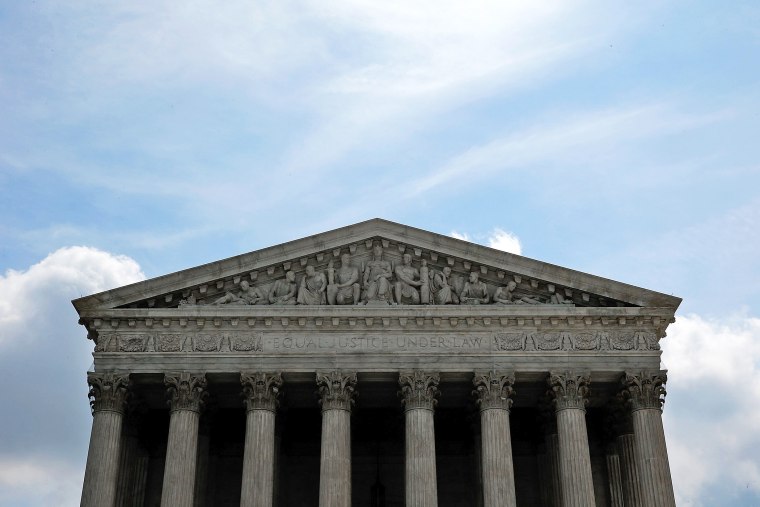In President Obama's first two years, he was able to name two justices to the U.S. Supreme Court, including Elena Kagan, who took the oath four years ago last week.
But as is the case with so much of the Obama presidency, there have been far fewer important and productive developments since 2010. When it comes to the high court, might that soon change?
President Barack Obama suggested to supporters Monday that he's likely to have the chance to nominate new justices to the Supreme Court before he is set to leave office in 2017. Taking a break from his Martha's Vineyard vacation to speak to a Democratic Senate Campaign Committee fundraiser on the island, Obama appeared to be predicting that there will be vacancies on the Supreme Court soon, though he did not indicate a specific time frame. He implored the guests to work to keep the Senate in Democratic control so that Democratic nominees won't be obstructed by Republicans.
According to the official transcript, the president told donors at a Massachusetts fundraiser, "What's preventing us from getting things done right now is you've got a faction within the Republican Party that thinks solely in terms of their own ideological purposes and solely in terms of how do they hang on to power. And that's a problem. And that's why I need a Democratic Senate. Not to mention the fact that we're going to have Supreme Court appointments, and there are going to be a whole host of issues that many people here care about that are going to be determined by whether or not Democrats retain the Senate."
It's certainly possible that Obama wasn't being literal. When he said "we're going to have Supreme Court appointments," perhaps he was just speculating about one possible reason Democratic donors should prioritize the Senate majority, just in case.
But the presidential mention of a possible high-court vacancy was enough to generate some chatter, in this case, with good reason.
According to a 2006 Harvard study, the average Supreme Court retirement age is 78.7. Right now, Justice Ruth Bader Ginsburg is 81, while Justices Antonin Scalia and Anthony Kennedy both turned 78 this year. Justice Stephen Breyer, at 76, isn't far behind.
It led Sahil Kapur to note that if Obama doesn't see any more vacancies for the remainder of his presidency, "the 2016 presidential election could lead to a cataclysmic reshaping of the Supreme Court, and with it the country."
Caroline Fredrickson, president of the American Constitution Society, told TPM, "Appointments to the Supreme Court are always extraordinary consequential. But certainly under the circumstances, considering the age of a number of justices and the 5-4 splits in so many cases, it's now more important than ever."
It's worth noting that thanks to the so-called "nuclear option," majority rule has been restored to the Senate when it comes to judicial nominees*. So, in the event of a vacancy during a Democratic-led Senate in 2015 and 2016, Obama could be reasonably confident of a successful nomination. In a Republican-led Senate, it's anyone's guess.
* Correction: The "nuclear option" does not apply to Supreme Court nominees. My mistake.
